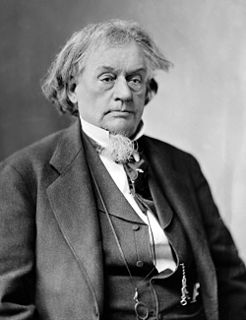A Quote by Samuel Johnson
It may be observed in general that the future is purchased by the present. It is not possible to secure distant or permanent happiness but by the forbearance of some immediate gratification. This is so evidently true with regard to the whole of our existence that all precepts of theology have no other tendency than to enforce a life of faith; a life regulated not by our senses but by our belief; a life in which pleasures are to be refused for fear of invisible punishments, and calamities sometimes to be sought, and always endured, in hope of rewards that shall be obtained in another state.
Quote Topics
Always
Another
Belief
Calamities
Distant
Endured
Enforce
Existence
Faith
Fear
Forbearance
Future
General
Gratification
Happiness
Hope
Immediate
Immediate Gratification
Invisible
Life
May
Observed
Obtained
Other
Our
Permanent
Pleasures
Possible
Present
Punishments
Purchased
Refused
Regard
Rewards
Secure
Senses
Shall
Some
Sometimes
Sought
State
Tendency
Than
Theology
True
Which
Whole
Related Quotes
The intimate relation between humor and faith is derived from the fact that both deal with the incongruities of our existence. Laughter is our reaction to immediate incongruities and those which do not affect us essentially. Faith is the only possible response to the ultimate incongruities of existence, which threaten the very meaning of our life.
IF WE AND OUR POSTERITY SHALL BE TRUE TO THE CHRISTIAN RELIGION, IF WE AND THEY SHALL LIVE ALWAYS IN THE FEAR OF GOD AND SHALL RESPECT HIS COMMANDMENTS, IF WE AND THEY SHALL MAINTAIN JUST MORAL SENTIMENTS AND SUCH CONSCIENTIOUS CONVICTIONS OF DUTY AS SHALL CONTROL THE HEART AND LIFE, WE MAY HAVE THE HIGHEST HOPES OF THE FUTURE FORTUNES OF OUR COUNTRY. OUR COUNTRY WILL GO ON PROSPERING.
The emotion of fear often works overtime. Even when there is no immediate threat, our body may remain tight and on guard, our mind narrowed to focus on what might go wrong. When this happens, fear is no longer functioning to secure our survival. We are caught in the trance of fear and our moment-to-moment experience becomes bound in reactivity. We spend our time and energy defending our life rather than living it fully.
There are three points of doctrine the belief of which forms the foundation of all morality. The first is the existence of God; the second is the immortality of the human soul; and the third is a future state of rewards and punishments. Suppose it possible for a man to disbelieve either of these three articles of faith and that man will have no conscience, he will have no other law than that of the tiger or the shark. The laws of man may bind him in chains or may put him to death, but they never can make him wise, virtuous, or happy.
In my view, all that is necessary for faith is the belief that by doing our best we shall come nearer to success and that success in our aims (the improvement of the lot of mankind, present and future) is worth attaining...I maintain that faith in this world is perfectly possible without faith in another world.
Our thoughts are always elsewhere; we are stayed and supported by the hope for a better life, or by the hope that our children will turn out well, or that our name will be famous in the future, or that we shall escape the evils of this life, or that vengeance threatens those who are the cause of our death.
Sören Kierkegaard has another answer: human existence is possible as existence not in despair, as existence not in tragedy; it is possible as existence in faith... Faith is the belief that in God the impossible is possible, that in Him time and eternity are one, that both life and death are meaningful.
Universities were not meant entirely, or even chiefly, as stepping-stones to an examination, but that there is something else which universities can teach and ought to teach-nay, which I feel quite sure they were originally meant to teach-something that may not have a marketable value before a Board of Examiners, but which has a permanent value for the whole of our life, and that is a real interest in our work, and, more than that, a love of our work, and, more than that, a true joy and happiness in our work.
But, today, the idea of faith returns to me. Faith defies logic and propels us beyond hope because it is not attached to our desires. Faith is the centerpiece of a connected life. It allows us to live by the grace of invisible strands. It is a belief in a wisdom superior to our own. Faith becomes a teacher in the absence of fact.
We are the dead. Our only true life is in the future. We shall take part in it as handfuls of dust and splinters of bone. But how far away that future may be, there is no knowing. It might be a thousand years. At present nothing is possible except to extend the area of sanity little by little. We cannot act collectively. We can only spread our knowledge outwards from individual to individual, generation after generation. In the face of the Thought Police there is no other way.




































